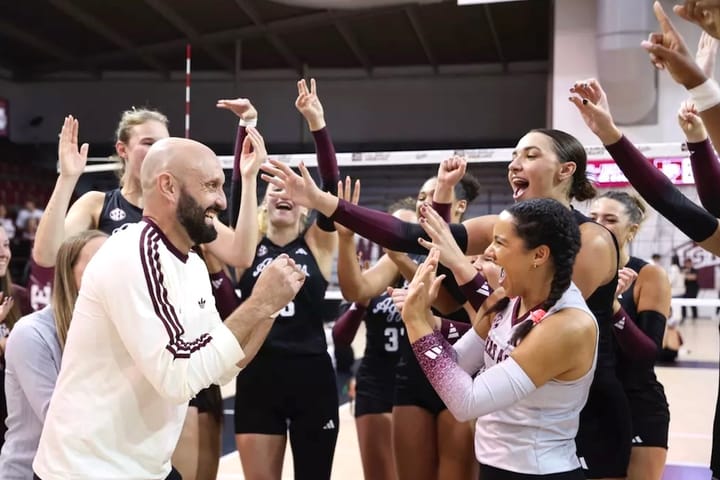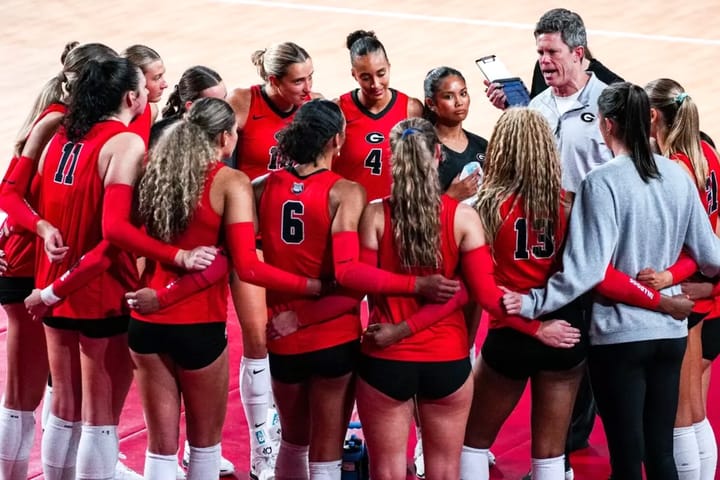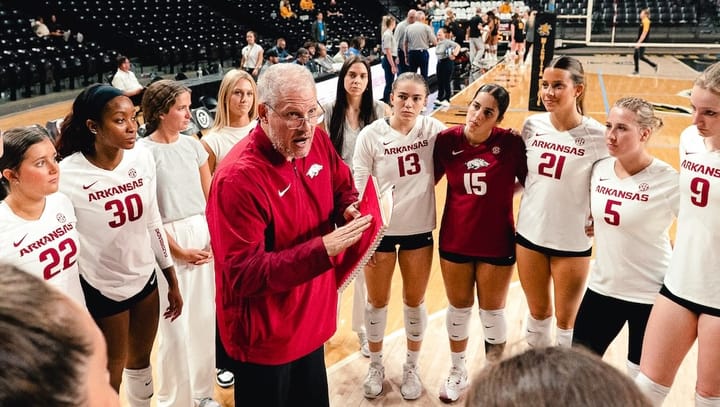76. Dan Fisher: I just want to win the day.
Dan Fisher is the head coach of the University of Pittsburgh women's volleyball team. In the last 11 seasons, he propelled Pitt volleyball into the highest national ranks.
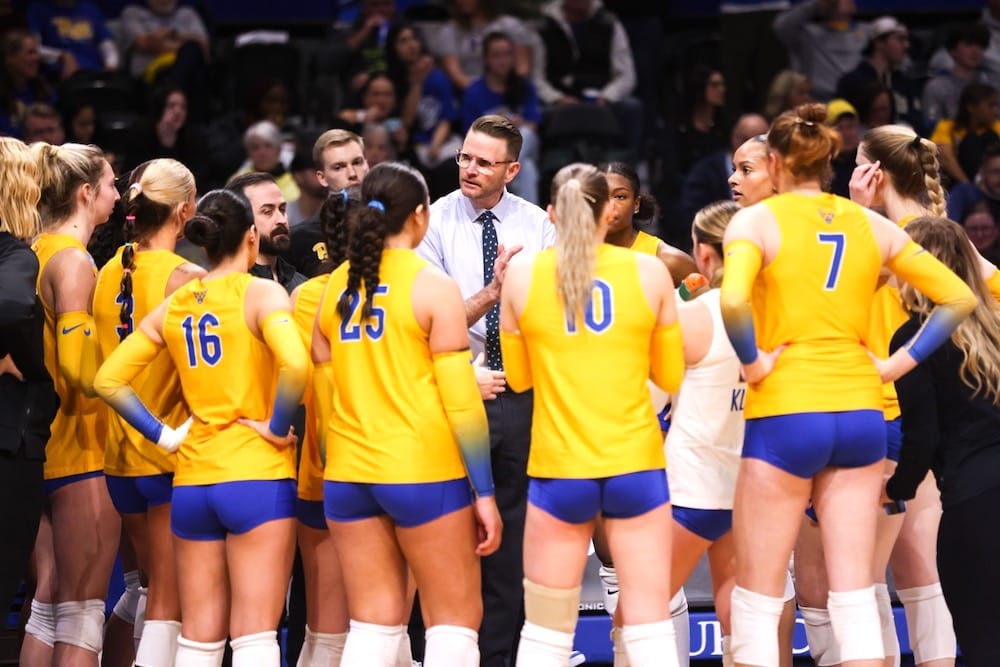
Under coach Fisher's leadership Pitt volleyball captured five ACC Championships and made four runs to the NCAA Elite Eight (2020, 2021, 2022, and 2023).
And he led the team to three consecutive NCAA Division I Women’s Final Four appearances in 2021, 2022, and 2023.
Beyond the collegiate courts, Dan has also been the head coach of the U.S. U21 Team, he guided them to back-to-back gold medals at the Pan American Cup in 2022 and 2023.
In this Masterclass Dan talks about:
- How training volleyball would change with significant rule changes.
- Prioritizing personal growth over following a predefined path.
- The fine line between embracing failure and being indifferent to it.
- How volleyball will further improve.
- Safer conditions under challenging gameplay situations.
- Focus on stamina over grit.
- How better listening and questioning can improve relationships.
- Offering affirming feedback, not just praise.
- And so much more...
We've got 15 video clips (35+ minutes) in Coach Fisher's Masterclass. Enjoy!
Before we get this started, a big thanks to Dan for his availability.
Why did you decide to commit to being a professional volleyball coach? What pushed you towards that decision?
This is a while ago now, I was studying to be either a teacher or a counselor. After that I played professionally for five years, and I think about halfway through year two or three, I started considering: “When this is done, do I want to try being a university coach?”
So in that process, I started working at some university camps in the summer. I would talk to former coaches and I decided to give it a try. For the first three years I was still an assistant coach, I was learning, and in the back of my mind, I was wondering if it was always going to be volleyball for me. Is this really what I'm always going to do?
And I would say probably around year four or five is when I fully committed to this profession.

It's changed a lot, but volleyball has given me everything. So I'm happy to still call myself a coach.
What advice would you give yourself as a starting coach? An advice that is so clear and logical for you now, but that you had to develop over the years.
Maybe I was naive. I was still thinking like a player, I thought, "I like my experiences with my head coach, I like being part of the team. I like player development." I just had no idea how much the business of volleyball would change.
I would tell myself to be ready that, the business of volleyball will not stay the same. But with that, I would also probably remind myself that there's something very deep in humans who want to be part of a team and a group.
So I think no matter how much the business or the league changes, there's always going to be a desire to be part of a special team.
No matter what happens, there's a chance that your connection with the players and that group can still be very fulfilling.
So in a way, putting less value on the changing of the landscape, but more putting it all in on the sport that you love and the connections that you get to create.
Because if you get caught up in, "Well, it used to be this way". Ok, but we're living in 2024 and we have to coach in these modern times. When you're with a certain group, it can still be special.
What are common mistakes you still see in our sport or coaching today?
My answer will be specific to coaching in the U.S. A lot of young coaches ask me about my path or how I got to be working with the national team or the head coach at Pitt.
Probably young coaches should be less concerned with the path and more concerned with just learning and growing and becoming good.
Our sports psychologist talks about getting good versus being good. So, I think we should put all our focus on just getting better at what we're currently doing. Then the path usually presents itself to you.
Another failure. This, I think, applies to any business, but a lot of coaches, when they take over a program, start talking about ‘when I get my people in’, or ‘when I get my team in’.
I think the best leaders make the best out of the team they have. Yes, of course, any business is going to make changes. But I think the best coaches get the best out of the players that are already there.
The final point I have is that I look at failure a bit differently than others. I think failure has become very vogue. Everyone talks about how great it is to fail.
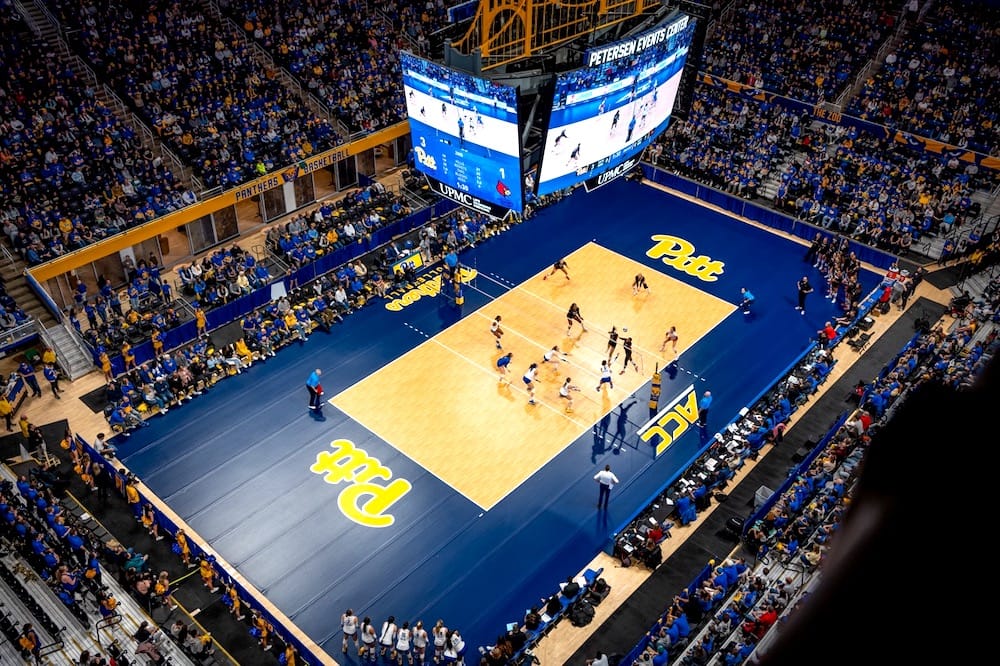
But there's a difference between not being afraid to fail and not caring if you fail.
A lot of coaches in America talk a lot about failure, and I'm not scared to fail, but I don't want my athletes to spend the whole day failing. I don't think it's good for their self-confidence.
I want to set up drills and practices where they can get a lot of wins throughout the day. And if they fail, we'll analyze it and try to make it better. But, yeah, I don't like to set up my practice gym where we're failing the whole day.
Do you have a particular goal? Maybe a goal that you already reached or a goal that is so hard to reach that it gives you daily motivation.
The real answer is I just want to win the day. I want to have the best practice I can today.
Over the last couple of years, I've been trying to ask better questions and become a better active listener. Those are two goals that I've had for myself.
But in terms of the big picture, of course, I would love to win a national championship. I know it wouldn't change my life a lot, but it would be nice.
And I think, with my involvement with USA Volleyball, I love international volleyball, so someday I would like to be in the Olympics. I wasn't quite good enough as a player; I was a kind of a national B-team kind of guy.
I wouldn't have to be there as a head coach, but I would love to just be part of a staff that was in the Olympics someday.
How do you handle the periods of 'figuring out' during the season? What are team values you want to instill?
In the gym, the word I use a lot is "try." I’m not asking someone to change. So if I suggest, "Hey, try this, try that. Why don't you try this?" it feels lighter. Then, if we try something new and it doesn't work, we just go back to what works.
So, especially in season, we have to be careful with this. Asking someone to change something they trust typically means they'll get worse first.
But if they try something new and they like it better and it feels right, then the change can happen more naturally.
In terms of managing the team, I have very few team rules. We have what we call standards, and we do a lot of contrasting. We talk about the behavior of the average player versus the behavior we want.
Typically, I'll divide my season into four parts. At the start, the coaches lay out a document stating the cultural values we want and the technical focuses we believe we need to reinforce or improve.
